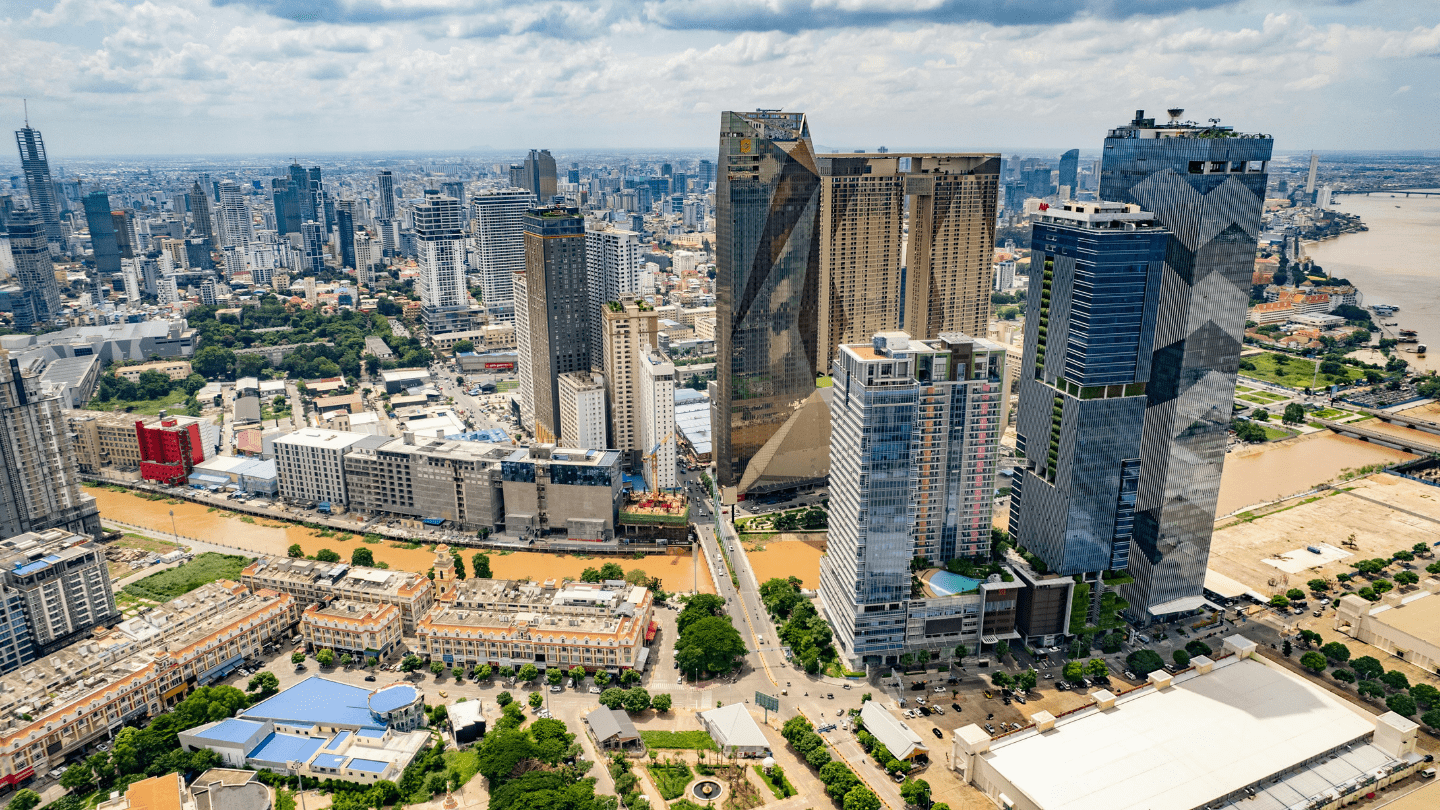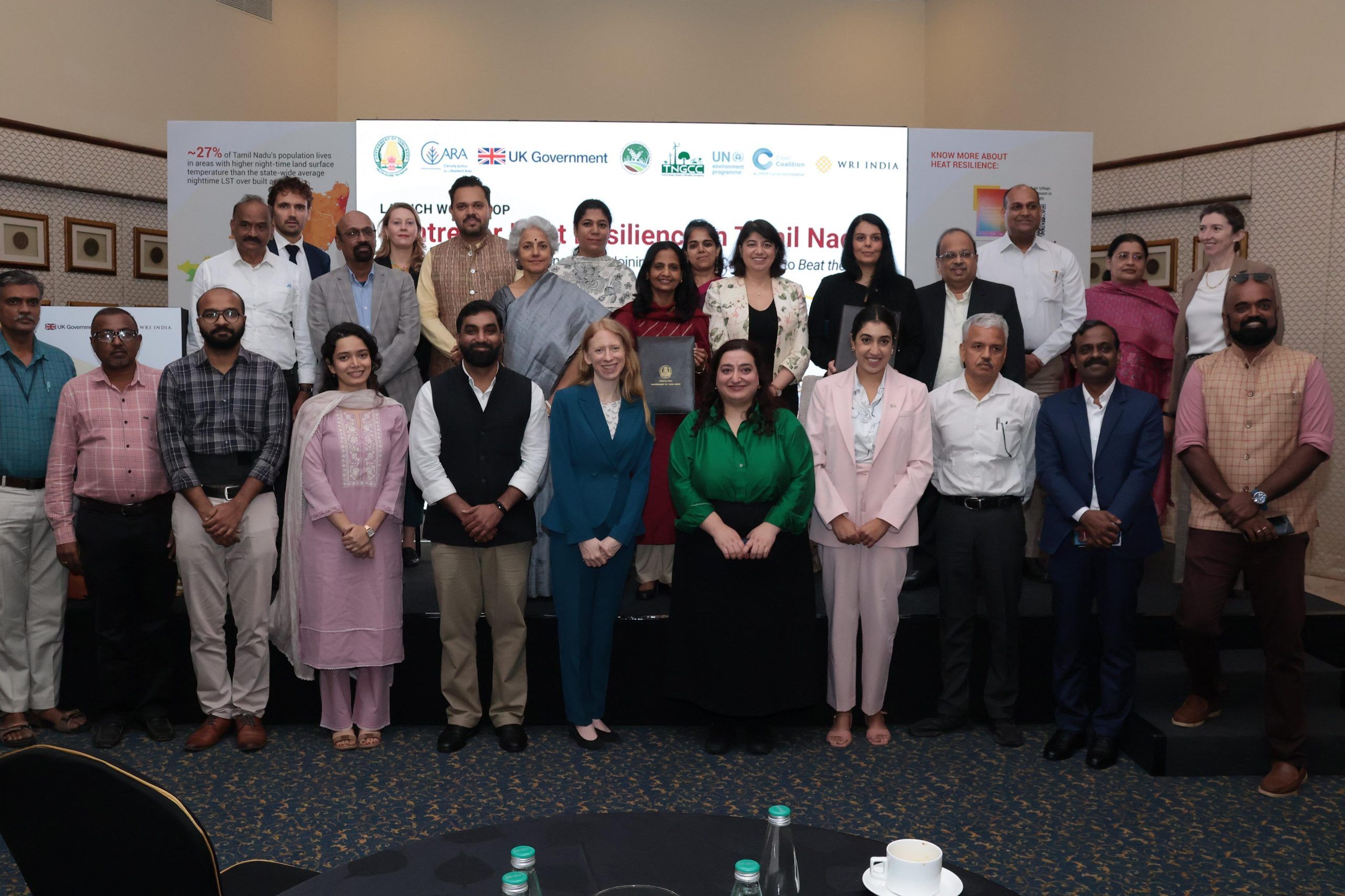Mexico City, February 5th, 2020 — With increasing urban growth and economic development in addition to rising global temperatures, the demand for cooling is booming. Cooling currently accounts for 17% of the world’s total demand for electricity. By 2050, according to the International Energy Agency, space cooling is expected to be the second-largest source of global electricity demand. Moreover, air conditioning contributes 50-80% of peak demand in hot climates, and peak power is usually the most carbon intensive, polluting and costly – straining electricity grids, household, and national budgets.
This is why the Kigali Cooling Efficiency Program (K-CEP) —a $60 million philanthropic collaborative that funds efforts to scale efficient, climate-friendly cooling solutions within developing and emerging economies— partnered with Iniciativa Climatica de Mexico (ICM) to host stakeholders from around Mexico.
Adrián Fernández Bremauntz, Executive Director of ICM, gave the opening remarks to the event ‘Scaling Up Efficient, Climate-friendly Cooling Solutions in Mexico’, remarking: “In Mexico specifically, the stock of air conditioners is projected to grow from 16 million units today to 126 million units in 2050. Fortunately, solutions exist to help meet the increasing demand for cooling whilst simultaneously transitioning to cleaner cooling systems.”
The aim of the conference was to discuss established and novel approaches for advancing efficient, climate-friendly cooling in Mexico. In her message as keynote speaker, Dr. Marina Robles, Secretary of the Environment of Mexico City mentioned that this event was timely because the City is preparing a new Climate Action Program, in which special attention will be given to mitigation opportunities in the energy sector. “We are preparing important actions related to both renewable energy and greater energy efficiency in various sectors that will range from vehicle efficiency to efficiency in the cooling sector,” said Secretary Robles.
One frontrunner is Mabe, the leading home appliance brand in Latin America, which announced a complete phase out of all HFCs from their refrigerator production plants by the end of 2020 and is also committed to continue improving the efficiency of all manufactured refrigerators, leading to energy efficiency improvements between 10 and 25 %. This improvement shows the potential for raising standards in Mexico so as to benefit consumers, national industry and the environment.
Pablo Moreno, Head of Corporate Affairs at Mabe, stated that: “With K-CEP funding, Mabe has completed the design, manufacture and testing protocols for energy efficient compressors that will be used in all refrigerators in Latin America. This monumental commitment of Mabe with both efficiency and climate-friendly substances sets an example in the region and globally. They are providing a success story that highlights to policymakers that low-GWP transitions coupled with improvements in energy efficiency can occur rapidly and at scale in order to ratify and exceed international agreements.”
At the conference, MGM Innova Group — a Climate Finance group that specializes in developing and financing sustainable energy and efficient cooling projects in Latin America, — announced that, with support from K-CEP it is working on a large scale residential and commercial refrigerator replacement program which supports the transition to low GWP refrigerants and high-efficiency appliances in Colombia and is also working to structure a similar program in Mexico with IDB and local stakeholders.
Alfredo Nicastro, SVP Operations and Sales at MGM Innova, stated: “Commitments from Mabe show how both industry and government can lead by example to unlock transformative solutions that scale efficient, climate-friendly cooling in order to fight climate change, reduce pressure on government subsidies and improve economic well-being for citizens.”
René Álvarez Gutiérrez, SEMARNAT energy efficiency specialist, commented: “There’s a lot of work done in Mexico. The country has robust regulation, which is the main driving axis, and there are also actions and initiatives focused on improving cooling efficiency, such as those carried out under the Montreal Protocol and the Kigali Amendment. To keep going forward, it’s required to involve all the key actors and unite efforts in the use of alternative refrigerants and energy efficiency. We’ll be facing future challenges and have many opportunities to achieve more efficient cooling; fortunately, there are many people working on it. ”
Jessica Brown, K-CEP Director, stated: “Over the coming decades, Mexico’s cooling demand is forecasted to drive over 25% of the country’s total increase in carbon emissions, the highest share projected for any country in the world. This is why K-CEP has made Mexico a priority and why we are tackling the issue from all angles – through policy, finance, industry, and non-regulatory programs. We are excited by the excellent work being showcased by K-CEP partners, including MGM Innova’s plans for the upcoming refrigerator replacement program, as well as Mabe’s commitment which really sets the bar for other industry players.
Odón de Buen, Managing Director of CONUEE recognized the importance of addressing the issue of cooling and conditioning of spaces in Mexico. In this sense, he said that “the Commission plays an important role in issuing mandatory energy efficiency standards that affect the energy performance of air conditioning and building equipment as well as systems, in addition to ensuring compliance with national energy efficiency goals, where energy savings in buildings is a central element.” In addition, he recognized the effort that the K-CEP program is making globally and specifically in Mexico to advance through this important task.
Federal government representatives from SEMARNAT, CONUEE and INFONAVIT attended and spoke at the event, along with officials from the municipal government, including representatives from SEDEMA, Mexico City’s Ministry of Environment. Secretary of Environment for Mexico City’s Ministry of Environment, Marina Robles, was also in attendance and delivered the meeting’s opening remarks. From the private sector, attendees included appliance manufacturers, investors, and banks. A number of representatives from civil society were at the meeting, including seven foundations and non-profit organizations.



